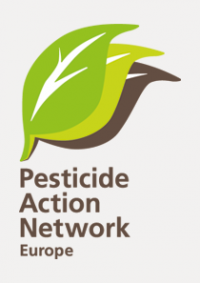Briefings
Gaps in EU pesticide authorisation
Europe could and should be much healthier and biodiverse. Four years ago the PEST Committee in the European Parliament concluded after 9 months of investigations, hearings, missions and commissioning of studies that the current system of pesticides authorisation is failing to achieve its purpose, highlighting the need for urgent change.
Glyphosate based herbicides and their impact on bees' health
Many people assume that herbicides, since they are designed to kill plants, are not toxic for bees. This, however, is far from the truth. In this summary we provide scientific findings that reveal that glyphosate-based herbicides (GBH) are toxic to bees in many ways. Bees are exposed to this chemical either by direct contact or by ingestion via food and contaminated water.
Our research shows that the herbicide:
Joint NGO analysis of the European Commission’s proposal for revised list of priority substances for surface and groundwater
On 26 October 2022, the European Commission presented its proposal for a Directive amending the Water Framework Directive (WFD 2000/60/EC), the Groundwater Directive (GWD 2006/118/EC) and the Environmental Quality Standards Directive (EQSD 2008/105/EC). The initiative updates the lists of priority substances for surface and groundwater and their associated legal threshold values that are used to assess chemical status under the WFD.
Comparative Assessment and Substitution
Under Regulation (EU) 1107/2009, active substances that are the most hazardous to human health or the environment are approved as candidates for substitution. In addition to being approved for a maximum period of seven years, these substances can only be authorised in pesticide products by Member States when a comparative assessment has shown that they cannot be substituted with safer alternatives. Comparative assessment, in line with Article 50, is a legal requirement for all Member States since 1 August 2015.
Position Paper on the Implementing Regulation on the Identification of Unacceptable Co-formulants of pesticides
PAN Europe considers that the Commission’s proposal for a new implementing regulation on co-formulants used in pesticides[1] fails to ensure compliance with Reg. (EU) 1107/2009, i.e that co-formulants used in pesticide products cause no harm to human health or have no unacceptable effect on the environment.
Joint Statement on the revision of lists of surface and groundwater pollutants
As a joint alliance of EU health and environmental civil society organisations we hereby share our main policy recommendations on the update of the lists of surface and groundwater pollutants under the Water Framework Directive (2000/60/EC – WFD), the Environmental Quality Standards Directive (2013/39/EU – EQSD) and the Groundwater Directive (2006/118/EC – GWD).
PAN Europe’s Position Paper on the EU proposal for a Regulation on Sustainable Use of Plant Protection Products
On 22 June 2022, the European Commission published its proposal for a Regulation on Sustainable Use of Plant Protection Products (SUR) and repeal the current EU Directive (128/2009/EC) on the Sustainable Use of Pesticides (SUD).
Application of EU health and environmental standards to imported agricultural and agri-food products: Contribution to the call for evidence
The European Commission is consulting stakeholders on the rationale and legal feasibility of applying EU health and environmental standards (including animal welfare standards and processes and production methods) to imported agricultural and agri-food products. PAN Europe welcomes the opportunity of providing feedback and proposes below concrete actions to ensure greater consistency between the pesticide residue standards applied to domestic production and those applied to imported products.
Updated version: Position paper on the development of a risk assessment of pesticides on bumblebees and solitary bees
While the collapse of biodiversity is not questionable anymore and, particularly, that of insects, the pace of improving the situation at the pesticide regulatory level is extremely slow. The revision of existing guidance documents and the development of new ones are lengthy processes that do not correspond to the urgency of the environmental situation.
Position paper on the revision of the Sustainable Use of Pesticides Directive
The European Commission will present a proposal for a new Pesticide Reduction Regulation on 23 March 2022. That will be the start of a discussion with the European Parliament and the member states. It will lead to important discussions in all EU countries that should not be dominated by the lobbyists for the industrial farming model.
